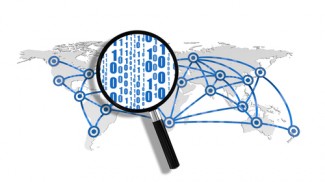'Hand-wringing' over digital surveillance is obstacle in terrorism fight, CIA director says

Image from Shutterstock.
CIA director John Brennan said on Monday that public “hand-wringing” and leaks involving digital surveillance have made it harder to identify “murderous sociopaths” of ISIS.
Speaking at conference in Washington, D.C., on Monday, Brennan said he hoped the Paris terrorist attacks would be a “wake-up call.” The Washington Post and the New York Times have stories. His remarks are here (PDF).
A new U.S. law replaces the old system of digital surveillance by the National Security Agency with a new system in which telecoms will store data that can be searched with judicial oversight.
Some U.S. officials have said that tech companies have made it more difficult to catch terrorists because they promote encryption that the companies themselves can’t unlock. Some have speculated the Paris terrorists may have used encryption to communicate.
Brennan referred to surveillance gaps in his remarks. “There are a lot of technological capabilities that are available right now that make it exceptionally difficult, both technically as well as legally, for intelligence and security services to have the insight they need to uncover” terrorism, he said. “And I do think this is a time for particularly Europe, as well as here in the United States, for us to take a look and see whether or not there have been some inadvertent or intentional gaps that have been created in the ability of intelligence and security services to protect the people that they are asked to serve.”
Officials in Europe were also debating the need for increased surveillance. Prime Minister David Cameron on Monday said he might fast track a draft law that would force telecom companies to keep customer records for a year.
In France, lawmakers passed a law in May that allows officials to monitor phone calls and emails of terrorists without a warrant and requires Internet providers to provide information to intelligence agencies, according to the Post. President François Hollande is calling for additional surveillance and authority to conduct raids without warrants.
Kameel Jaffer, deputy legal director of the American Civil Liberties Union, didn’t agree that governments need more surveillance authority. “As far as I know, there’s no evidence the French lacked some kind of surveillance authority that would have made a difference,” he told the Times. “When we’ve invested new powers in the government in response to events like the Paris attacks, they have often been abused.”



